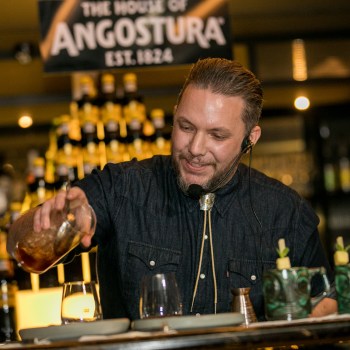It seems hard to comprehend that it is just one week since the Government closed down hospitality venues across the country as it looked to slow down the spread of coronavirus.
When the close down came, Ben Carroll and business partner Hamish Watts, the Co-Founders of Applejack Hospitality, made the decision to immediately put the company “in an induced coma”, as he described it to Bars and Clubs. The Government has since referred to that move as putting business into hibernation.
The aim was clear, eliminate as many costs as possible, reduce cash outflow and so have the business and all its venues in the strongest position possible to bounce back as soon as the crisis was over.
But in this rapidly changing and evolving health and economic crisis, plans can change hour-by-hour. Yesterday the Prime Minister and the Treasurer announced plans to help businesses impacted by the crisis and also introduced a Job Keeper payment to help cover employee costs.
Now Carroll and Watts, whose company was named as Bar Group Operator of the Year at the 2019 Australian Liquor Industry Awards, are already working on waking the company from its coma.
Carroll told Bars and Clubs: “We made the conscious decision to go into an induced coma straight away. We discussed options of trying to change business models, be nimble and look at different revenue opportunities, but to do that as a company with 200 employees at the time, would have meant a high level of risk.
“We decided to work on plugging every expense hole in the company so in three or six months’ time when we go to re-assemble our company, we’ve got the cash behind it and we can do it far easier.
“Everyone in the company has been stood down including myself and Hamish, there is not one wage being drawn out of the company currently, but then last night changes everything.
“We were packed down for hibernation, but given last night’s announcement we are probably going to change our tact.”
He commended the Government on it decision to implement the Job Keepers program and back small businesses to keep as many people employed as possible through its multiple stimulus packages.
“It means we are able to re-instate employees – albeit on a smaller wage – but we’ll also be asking them to work fewer hours. What we are going to look at doing over the next six weeks is trying to re-instate as many jobs as possible and we’ll be doing that in stages.
“Initially we’ll re-start the businesses that we’ve put to sleep, and then we’ll start to create workloads and as we do that it means we can keep on maintaining that workforce and we’re hoping we’ll be able to bring back around 90 per cent of eligible jobs.”
Looking at even more positives, Carroll said: “What this also means is that when it does come time to re-open and activate again, it will be much easier for us to do that.
“Our mission is really to keep as many jobs as possible, and that was the reasoning behind going into hibernation, and the announcement last night really helps us with that.
“Unfortunately it doesn’t look after our visa employees, I don’t know what the Government is going to do about that, it would be nice if they could look after them, but I do understand the difficulties in doing that.”
In terms how the business will operate and what functions and revenues it will generate the whole team is still looking at that and Carroll adds, “the landscape is moving so swiftly at the moment and to try and react to everything that is happening will mean confusing messages for our customers and for our teams.
“So we are going to sit on the bench for a little while, assess the situation and work out what revenue is there, but also making sure about return on investment.
“It is worth all businesses remembering that when it comes to negotiating with your landlord it is far easier to say we have not been open for three months so there’s no rent, rather than we’ve been open a little bit so here’s a small per cent of rent.
“For us a lot of how we negotiate with our landlords helps make the decisions on how we proceed and how we trade our venues.”
Looking forward, Carroll urged optimism, telling Bars and Clubs: “There is positivity to come out of this, whether that’s more time at home and with families. Or how many people are having house parties on their phone and reconnecting, where they couldn’t before because they were too busy, that is fantastic.
“And I tell you what, the party in the street when the war is over is going to be pretty epic.”
I don’t think anyone will disagree with that!



